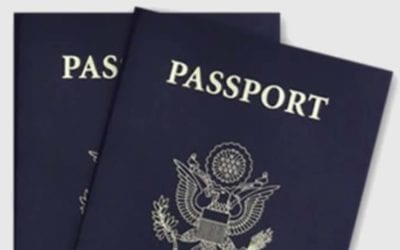Charlie Leocha, the Director of the Consumer Travel Alliance was invited by the Senate Committee on Commerce, Science and Transportation to testify about the proposed merger of Continental and United Airlines. Here is his oral statement made before the committee.
Click here for the full Consumer Travel Alliance written testimony.
Thank you, chairman Rockefeller for giving passengers a seat at this committee table and an opportunity to testify.
My name is Charles Leocha and I am the director of the consumer travel alliance, a non-profit created to keep the needs of consumers in front of legislators, regulators and their staff. Our alliance is a member of the Consumer Federation of America.
My testimony today focuses on the proposed merger of United and Continental airlines.
According to news reports, these airlines are already forming a steering committee and establishing teams of employees to delve into the details of aligning.
Whoa, Nellie. As we say back in my neighborhood, it ain’t a done deal yet.
The Consumer Travel Alliance cannot find any public benefit from this merger. There are no new destinations and no new savings passed on to passengers. We see customer service disruptions and more restrictive frequent flier programs. Ultimately, we believe consumers will be faced with less competition and higher prices.
In addition, thousands of small businesses and corporate travelers will face difficult negotiations with a mega-airline larger than any our nation has seen before. The merger plan acknowledges thousands of employee layoffs when our economy is under stress.
Our nation is now faced with two forms of consolidation: the traditional merger of two airlines and the development of alliance antitrust immunity that allows multiple airlines to operate as one internationally.
Neither this merger nor antitrust immunity are in the consumers’ interest. I don’t think that any of us in this room can point to even a single public benefit from the latest airline mergers.
Bankruptcy for both airlines has squeezed costs and capacity out of their system. This merger will only squeeze competition out of the system.
Though continental and united already work together as alliance partners, they still compete aggressively with each other in many ways for corporate and leisure travelers. They still compete for airline gates, frequent fliers, suppliers, travel agency attention and more.
The Department of Justice (DOJ) should conclude that the proposed merger is not in the public interest, just as they did a year ago, when reviewing the application from these same two carriers for airline alliance antitrust immunity.
DOJ’s reasons for denial included consumer harm, higher fares and elimination of competition, and ultimately that it was not in the public interest; nor is this merger.
This union, however, ups the ante.
Should this merger be approved, the nation’s system of network carriers will be effectively reduced to three — Delta, United and American.
This trio, even without USAir, already rumored to be exploring a merger with American, would control more than 70 percent of the domestic market if associated regional airlines are included. And their alliances would control 85 percent of international traffic.
We are creating yet another industry with companies, “too big to fail.” have we learned nothing from the past two years?
Admittedly, these two airlines have limited overlapping routes, however their impact on hubs, long-haul routes, connecting routes, suppliers and consumers cannot be measured by overlapping routes alone.
The potential impact of this merger should be examined through the long-term prism of the U.S.A. with only three dominant airlines. It will be a consumer nightmare.
Much has been made of the price discipline exercised by low-cost carriers. Maybe so for point-to-point competition. But flights to smaller regional cities and connecting flights, especially to international destinations controlled by these carriers and their alliances, will not face any pricing pressures from low cost carriers. And that connecting traffic is what these hub-and-spoke airlines are all about.
In summary, this continued consolidation may be helping large airlines survive in the short run, but when the economy improves, consumers — both leisure and business — will be left at the mercy of a government-approved system of airline oligopoly with less competition and, ultimately, higher airfares.
If airline consolidation is allowed to continue with mergers of domestic carriers and antitrust immunity, the consumer travel alliance predicts this committee will find itself, within the decade, meeting to find ways to restore competition to our airline system that is being eliminated today.
America’s airline passengers thank you for this opportunity to testify.
I look forward to any questions.

Charlie Leocha is the President of Travelers United. He has been working in Washington, DC, for the past 14 years with Congress, the Department of Transportation, and industry stakeholders on travel issues. He was the first consumer representative to the Advisory Committee for Aviation Consumer Protections appointed by the Secretary of Transportation from 2012 through 2018.



